Maaianne Knuth founded the learning village ‹Kufunda› in Zimbabwe 21 years ago. In addition to the many on-site workshops for the rural communities, a Waldorf-inspired school and small Biodynamic agriculture developed. Kufunda is a social initiative that enables people to find themselves, which does not only apply to Zimbabweans who want to free themselves from their colonial legacy.
In Africa, the pace of my steps slows down. After only 2 days, I do not know what date it is. I know the day of the week, but not the exact time. I know that it gets dark at 6 pm, and after 3 days, I understand the strange coloring of the sunset sky: a broad band of orange above the treetops, caused by the smoke of the fires that rage in the bush at this time of year. My way of looking at things changes. I breathe more calmly. It’s not the heat that causes that. Instead, it is the spirit of the landscape, of the people. Yes, I am in a foreign country, far away from my ‹Gewohnheitsdickicht›1 [habitual thicket]. That probably plays a role. But something is living in Zimbabwe, which I also know from other African countries. Perhaps it is the heat ether that encourages more flow and trust here. Also, in the social sphere. Because community is the core of Africa, and it is the same in Kufunda, with a Danish influence.
Returning Home
Zimbabwe used to have ‹Nimbe›: one day, everyone comes to my place and works my field while I take care of the food. Next week we will do another neighbor’s field. «When village communities, in the process of appreciation and dreaming, revive some of the old traditions, they wonder why they abandoned them in the first place. For example, the chief used to receive a share of everyone’s harvest, which was intended for low-income families and orphans he cared for. Because of our work with the communities, they have reintroduced this on their own. What we do is reconnect for the first time,» says Maaianne, describing the work of the Kufundees. Right from the start, they went to the villages and opened up spaces for reflection in discussion rounds. For women, for young people. Inviting the chiefs wasn’t that easy. Fortunately, Maaianne was unfamiliar with Zimbabwean culture and took the risk. The chiefs spent three days in Kufunda and experienced the culture of the discussion group, which begins with a check-in, i.e., how everyone is doing. The stone gets passed around, and whoever has it in their hand is allowed to speak. There is equality. It was not easy for all chiefs to bear that a woman just wanted to teach them something. And yet, they recognized the value of the circle. Kufunda’s impulse has to do with reclaiming one’s own values. Maaianne is confident that this is the only way to create something new. «It has the ‹coming together› of Africa and the intelligence of Europe. This brings them together in Kufunda,» says Tichaenzana2, who has lived here since 2016, takes care of agriculture, and knows that he has arrived in the right place. Kufunda means ‹learning› in Shona, the language spoken by 70% of the people of Zimbabwe. For three or four years, the Kufundees have noticed that something is really moving in the communities. In self-determination and self-responsibility, people take inspiration from Kufunda and do something with it for their community.
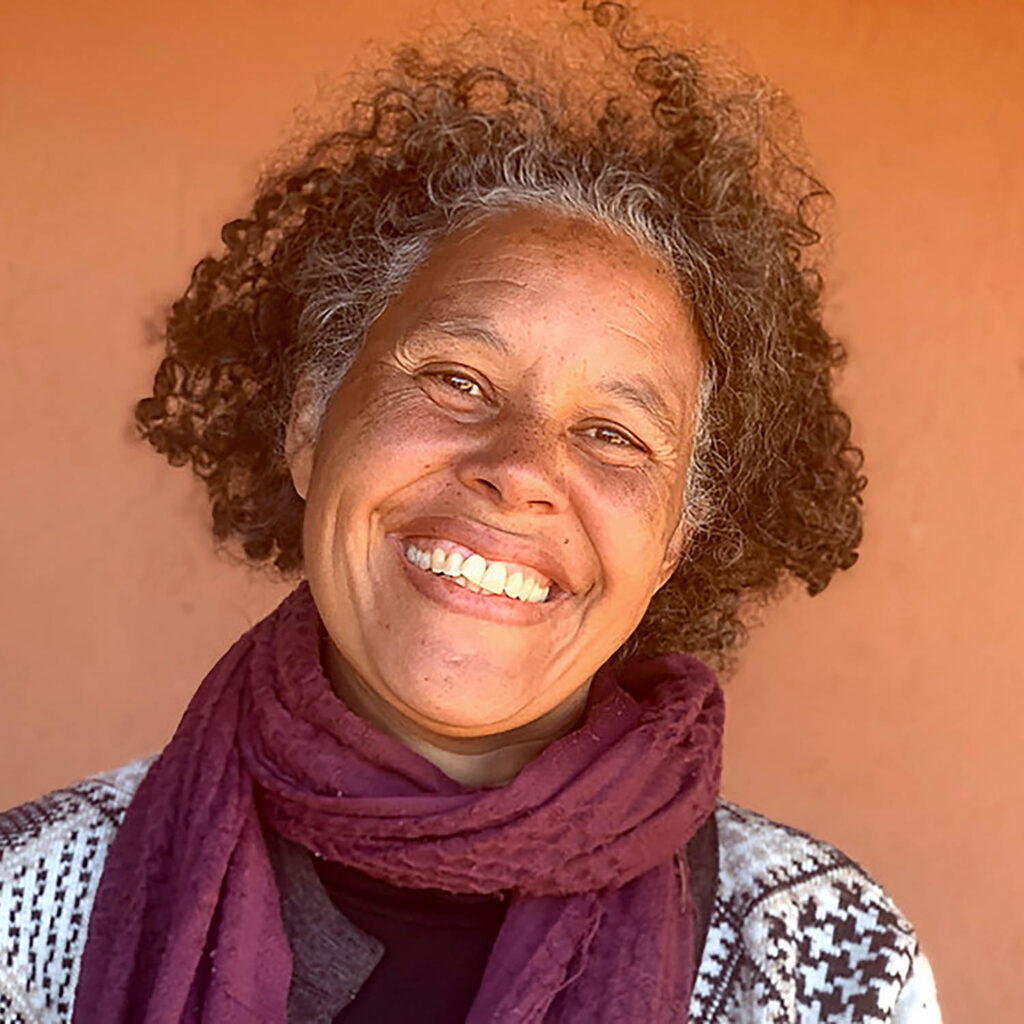
After growing up and studying in Denmark, Maaianne returned to her mother’s country and, with the help of European friends, began to build ‹Kufunda› on part of the 130-hectare farm: a round auditorium for meetings and workshops, a communal kitchen, dormitories for men and women, a dining room, and shower houses. These buildings form the heart and are used permanently. In mid-October 2022, for example, Kufunda invited all African biodynamic initiatives to the ‹African Biodynamic Conference›. During our short stay alone, several workshops took place: for women, for young people, and for politically traumatized Zimbabweans. My nineteen-year-old son took part in the one for young people. Moderated by Stephen, Sikhethiwe, Admire, and Maaianne, it’s about feeling your dreams and looking for ways to make them happen. My son was very impressed: «We need something like this in Germany, too.» An important pillar of these workshops is movement and dance. ‹Movement Medicine› is the name of the style of dance method Maaianne passionately practices and also offers in individual courses and Friday evening sessions in Harare or Kufunda. It is the second half of her heart. Her Anthroposophical seeds were sown in her twenties when she took over the moderation of workshops with Miha Pogacnik at Borl Castle in Slovenia over several summers. It was there that the ‹Philosophy of Freedom› was handed to her for the first time, of which she understood nothing at the time, as she admits with laughter.
Immediate Life
People don’t let themselves be rushed, even when they have things to do. When someone crosses your path, there is always a ‹Hello, how are you?› For Tsitsi, who is responsible for the sleeping arrangements and food management during the workshops in Kufunda, it wasn’t easy during her six months in Germany to understand why people did not respond when she greeted them. She even had to be told by a mother that she should not talk to their children because they weren’t supposed to talk to strangers. When a child is born here, it belongs to everyone. In some peoples of South Africa, it was customary for all children to address the adults as father or mother. You don’t need to ask your neighbor if she can take care of the baby. It goes without saying. Every morning Tsitsi has tied a little one on her back, which is not hers, and walks through the village to see which beds need to be made-up fresh or how the salt supply in the kitchen is doing. Every morning Nicolas, who lives in the neighboring hut, asks me if I need anything. He also eliminates a scorpion, which made itself known at night with a sting. Those with something to give, give to those who need something without demanding anything back. The balance will take place somehow and somewhere. In any case, nobody will be charged. It is a functioning ‹lending and borrowing economy› that secures people’s lives. This togetherness also protects against loneliness or isolation. It is a more immediate life, closer to each other and also closer to the outside world. The approximately 10 children who live in Kufunda are constantly on the move, playing soccer, climbing the rocks, or sneaking past the office because there is sometimes internet before they get vegetables for dinner in the garden. After a short time, my sons drive in the back of the pick-up in the afternoon to the next village to buy avocados and chips or just to be on the road. They enjoy this freedom and adventure. During this time, I go to the astronomy course that Trevor3, the fifth-grade teacher, offers to all interested parties who want to understand why Orion is upside down here. «Zimbabwe is a fantastic place to look at the stars,» says Trevor, and it seems like a beautiful metaphor to me. Later we look into the night and he tells me the Shona names of the planets and what they mean.
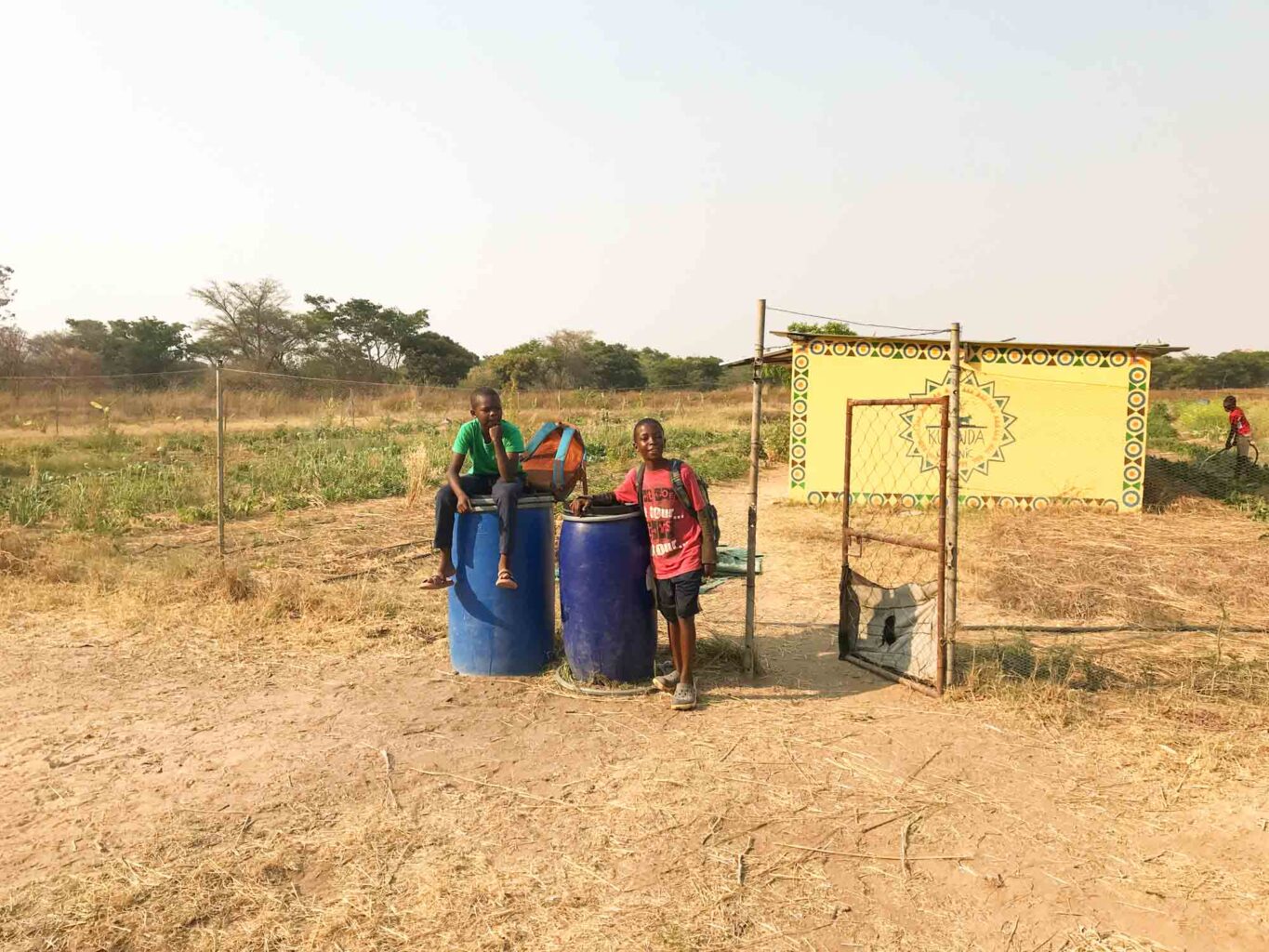
Communiversity
The pedagogue Nikolas Grundvig founded elementary schools in the countryside of Denmark in the 19th century. He rebelled against the supposed backwardness of the peasant children and helped his ‹compatriots› to value their own culture. Since then, Danish butter has been something extraordinary! «He is part of my Danish roots,» says Maaianne. «He wanted to find the impulse that ignites something in the children that does not have to be wound from the outside, like clockwork. He wanted to awaken in them a sense of pride and that they recognize who they are, their ancestry, and their history so they could derive their future from it.» That’s what Maaianne wanted and wants for Zimbabwe. And here is enough space, and much more is possible than in institutionalized and bureaucratized Europe. Here you can build a future. This also includes composting toilets, waste recycling, and an awareness of healthy nutrition for people and nature. Kufunda received the Hildur Jackson Ecovillage Award in 2022. But Maaianne also means to tease out the abilities and possibilities of the individual, to work with their dreams and positive, appreciative impulses of will. She believes in the possibility of waking up as ‹I› in the community. What emerges from this is what the Kufundees have called ‹Communiversity›: a diverse community in which everyone learns from each other and everyone has their value. And they teach what they have learned. Annah Bendicto is a Waldorf kindergarten teacher here. When she returns from the training weeks in Kenya, she goes through everything she has learned and discusses it with her husband to better understand it. So he also learns something about this pedagogy, Fidelis tells me. Also, for the women from the communities, she sometimes gives a course in the art of education.
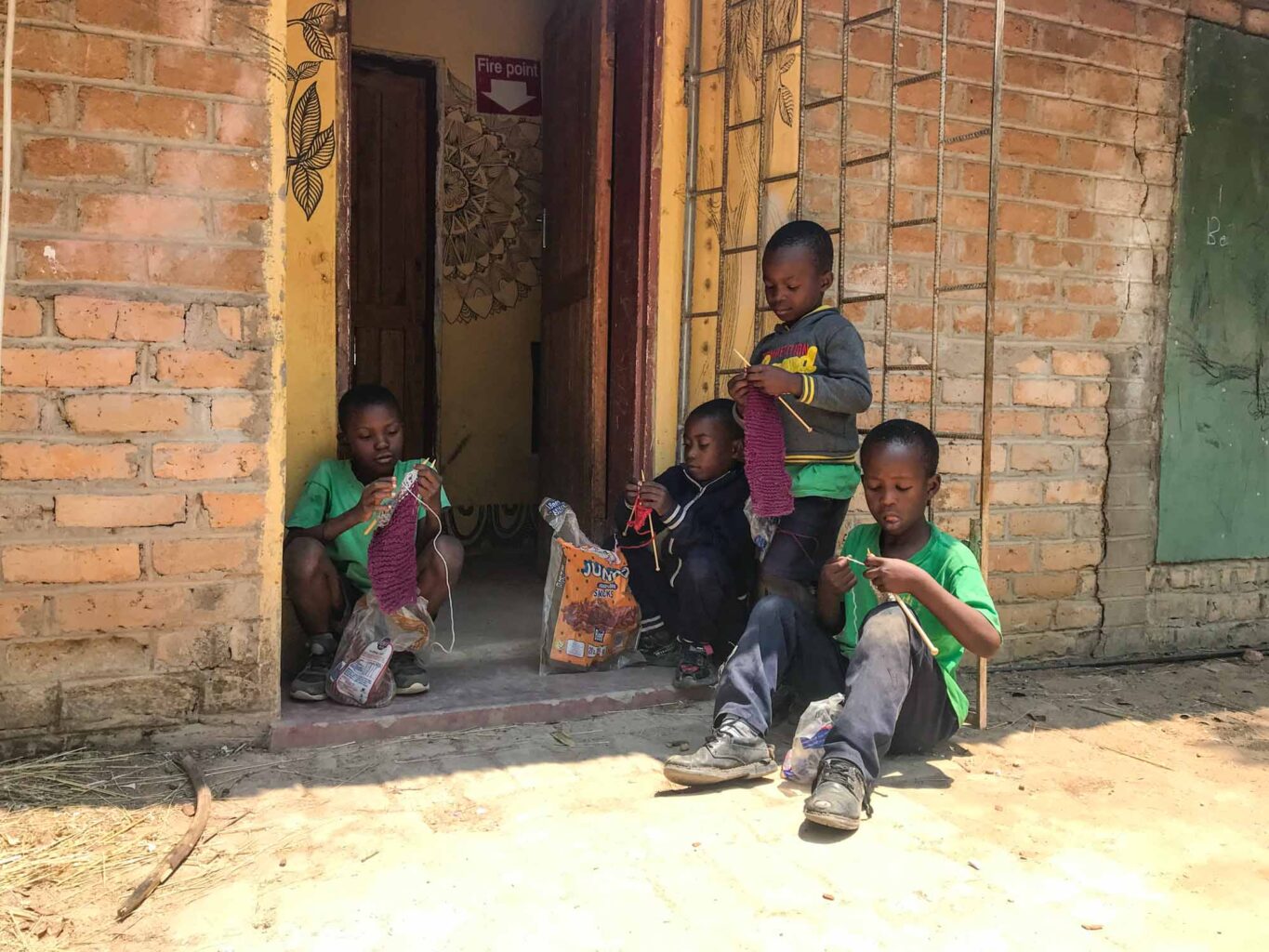
Kufunda has always financed itself mainly through friends of Maaianne or people who found this impulse vital and noble. Some NGOs and foundations participate, including the ‹Friends of Waldorf Education›. This network of donors is just as diverse as the content that is passed on in Kufunda by those who ever resonate with it. In this respect, ‹Communiversity› also stands for University. Kufunda, as an impulse (and also as a place), is the possibility to educate oneself in everything that has to do with oneself.
Children
3 pillars support the project at the moment: firstly, the village of Kufunda as a social initiative; secondly, agriculture — Biodynamic for the last four years and organic before that; and thirdly, education. Right now, about 90 children in grades 1-7 are taught through a Waldorf-inspired education. Since they have not yet gained official recognition, they are not yet allowed to call themselves Waldorf schools. Every vacation, the teachers go to Kenya for two weeks for part-time Waldorf teacher training. Patricia Mutsvandiyani, a teacher of the 1st grade, who is called ‹Madame› by the children, had opened a kindergarten in her village on her own initiative. She wanted to create a shelter, especially for AIDS orphans. At a workshop in 2003, she met Maaianne, and her small kindergarten moved to Kufunda. It wasn’t until 2015 that she and her colleague Annah ‹switched› to Waldorf education. The German doctor Florence Hibbeler played a large part in this. She lived in Kufunda for a few months and gave courses in Waldorf education. She also found donations to send the kindergarten teachers to South Africa for in-depth training. When the Kufunda children reached school age, Sikhethiwe wanted a Waldorf school. Since 2018, all teachers have been participating in the training in Kenya, and Patricia loves eurythmy. At the conference on Thursday, she tries to continue this. Sponsors finance the flights to Kenya. «I feel the children and move with them. I study them and see their growth. It’s great,» says Patricia. She earns $250 a month. Incidentally, she is also training as a primary school teacher because that’s what you need in Zimbabwe to teach. Then her salary will also be higher.
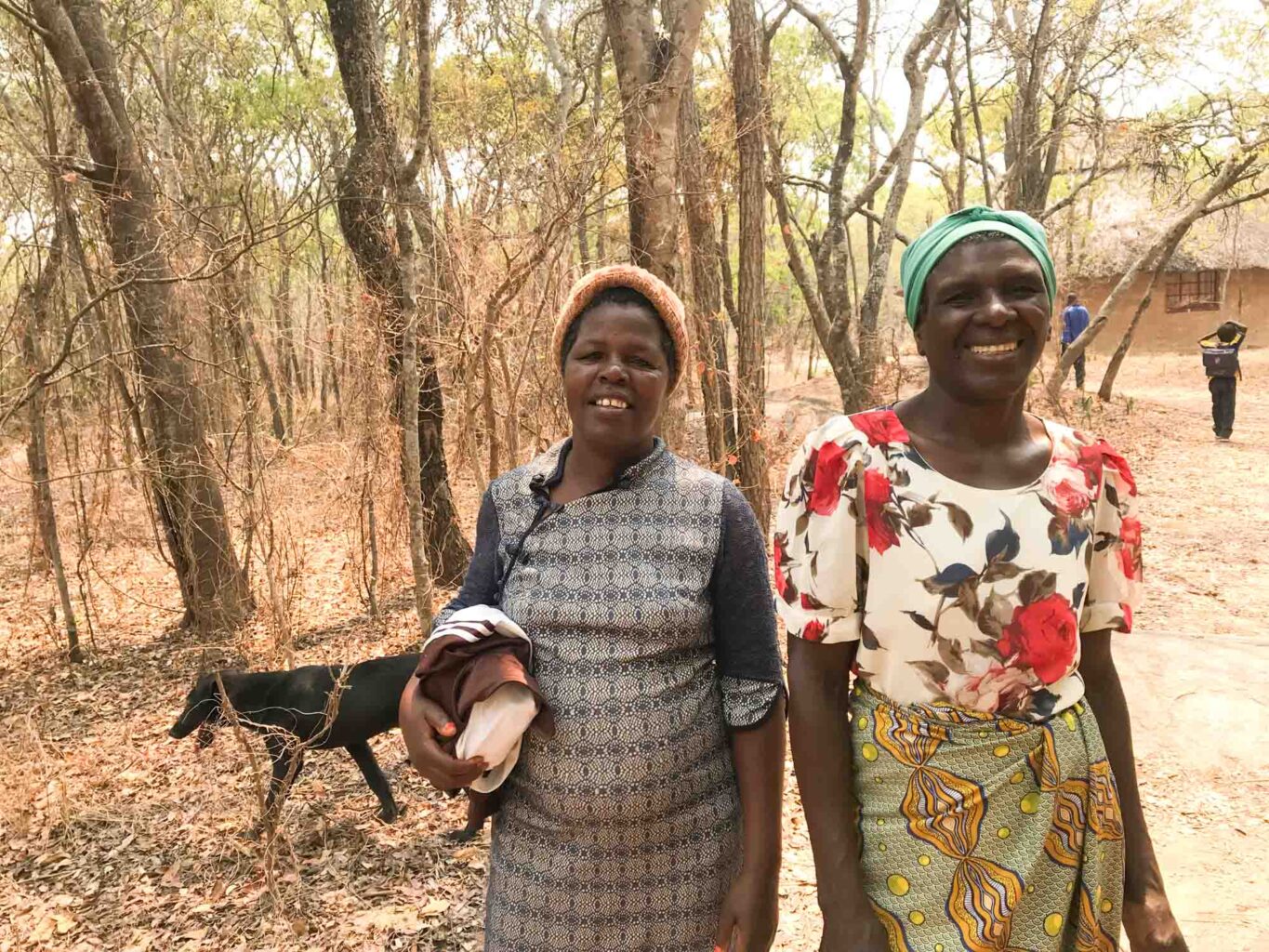
In the second and third grades, 9 children learn together in one room, taught by Elisabeth Madanire. She moves excellently between these two requirements. First, she tells a story there, then gives tasks, goes to the others, and works through something again that had already been discussed the day before. She radiates an incredible calm. Her assistant Anna Tennis always helps the group that is supposed to work alone. On the walls hang the typical Waldorf images as they are known from all over the world, wet-on-wet pictures, and a text from the Old Testament of Moses dividing the sea. Today, the third graders try to paint a picture of God giving mana from heaven. There is a quiet and concentrated atmosphere. Some adult voices ask why the children do not learn their own history, for example, about the Great Zimbabwe culture. Why should they know about Roman deities in 6th grade in Africa instead of the totems? This field is cultivated not only in Zimbabwe but also in the centers of the Waldorf movement. Alfred Rahmen, a former Waldorf teacher from Switzerland, flies to Kufunda twice a year and supervises the school, encouraging people to make music with African instruments instead of violins, collecting stories, and making a booklet out of them. Nicholas Maisiri is currently preparing his three seventh graders for an intermediate exam because they will continue at a ‹normal› school after this school year. I myself suddenly stood unexpectedly in front of the sixth graders and let myself be taught a song in Shona with a lot of giggles. The children come mainly from the surrounding area. A small bus also brings a handful from Harare here every morning, whose parents are convinced that this form of school is better. In fact, the teachers hear again and again at parties: ‹These children bring home something new that did not exist before.› It is how they act, feel, and take themselves seriously, which probably does not exist in Zimbabwean state schools.
Independent of the school, the Kufunda team is currently developing the idea of creating a training center for young people with resources available in the community. Plumbers, carpenters, car mechanics, and furniture upholsterers are nearby. One could enter into cooperation with them. That’s still being determined. The teachers, however, carry the idea of a boarding school. That is also possible here. The rooms are available. And a boarding school would bring real income. Because at the moment, the school fees are 20 dollars per quarter, from which unfortunately no salaries can be financed. Maaianne is glad that the teachers themselves are now starting to look for solutions and implementation options. She knows she can do a lot, but it’s only sustainable through participation. The school is growing, but it still needs a lot of energy to really establish itself, says Maaianne. Parent work is not yet integrated. Maybe they could help build new shelters.
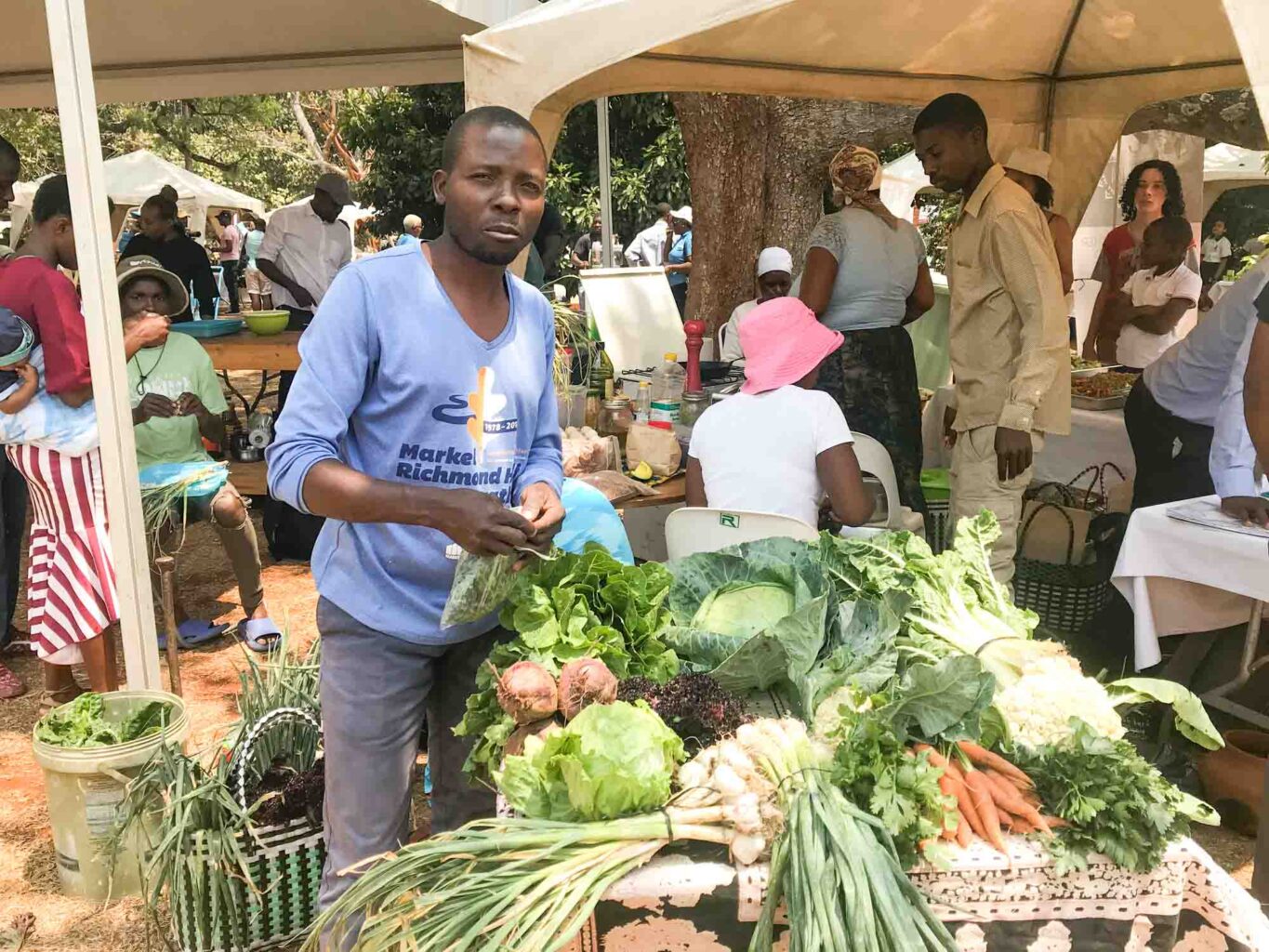
The Future
Kufunda is also still very new to the agricultural side. Tichaenzana and Trymore love what they do. And yet the financing must also be right. About 15 vegetable crates are prepared for Harare every week. Products from the neighbors also come into play if they at least grow organically. During a walk, I ask Tichaenzana how Anthroposophy resonates with him. «It is an amazing thing!» When he came into contact with Biodynamics, he felt that it was a document of the ancestors, not only of the Zimbabweans but of all the ancestors of human beings, who still knew what they were doing in harmony with nature. He feels a great gratitude to Rudolf Steiner for making this ‹knowledge› of his ancestors accessible again. It would be great, Maaianne thinks, if Ticha and Trymore could fly to Dornach for the agricultural conference. At the ‹African Biodynamic Conference›, Ticha teaches together with Angela Hoffmann from Sekem about preparations.
Anthroposophy is part of Kufunda’s future. The seeds from Borl Castle have risen like fireworks for Maaianne over the past five years. The South African Julia O’Leary had crossed the continent in search of African Anthroposophical initiatives and made her last stop in Kufunda. Since then, Maaianne, her husband, and some Kufundees have been attending the annual ‹All African Anthroposophic Training›, which was even held in and by Kufunda in 2019. Michaela Glöckler is always active in this and also knows Kufunda well. «Michaela was a gift to me. The standard of what she taught was so high. What Michaela, the Goetheanum, and the Agricultural Conference 2019 have done for me, I also wish for others in our region. That Kufunda makes a difference over time. That the mind comes in, and something good is created,» says Maaianne.
About a year ago, she moved with her family to Cape Town so that her children could continue to attend the Waldorf School there. That changes a lot for Kufunda. On the one hand, it hurts Maaianne incredibly that she no longer lives on-site and organizes all the time. On the other hand, as a founder, it requires an entirely new leadership style from her, which has to do with letting go, trusting, and delegating. She wasn’t there when the Festival of Cultures took place last summer, but everything went smoothly. The Kufundees have shared the management because they know and trust each other. Maaianne knows she creates space for the team when she’s not there. Her task is changing. She now accompanies more closely the process of reflection, the harvest of what has happened in the last 21 years. A generational change is also on the horizon. Young people want to help shape things. Maaianne begins to see bolder possibilities. How can you support someone inspired by Kufunda’s impulse to go to their homeland and do something rooted in their community? The question has not yet been answered and heralds the next stage. After 21 years, biographically, the child ‹Kufunda› has reached the birth of its ‹I›. In this small fine place. How does it go into the world?
Laughter
On Monday afternoons, a small group of Kufundees meets for a reading circle on Maaianne’s terrace. It is those who want that. There is no obligation to do so. When Maaianne is not there, she tunes in via Zoom. Right now, it is about the fourth chapter of Theosophy, and somehow we get into the question of waking dreaming. Resounding laughter sounds as this thought sinks into the minds. And then we tell each other how we imagine it. So if you realize in a dream that you have to go to the bathroom and know that you are dreaming? The mood is as cheerful in a way I do not know from German reading circles. The questions are freely asked and entirely direct. It seems to me that we in Germany answer questions more from the knowledge that we already have. We speak more from an idea of what would be a good explanation and how educated we might prove to be with it. Here, however, the questions do not rattle through filters of cunning or ignorance but are like hearty appetizers that you can taste. «Do etheric bodies, astral bodies, and physical bodies know about each other and about what they ever do? Does the etheric body have self-confidence?» There is something refreshing about their questions that inspires me to think further and look anew. They open something in my dusty train of thought. I would love to come to the reading circle every Monday. There are prophetic rumors, perhaps not perceived from a Eurocentric perspective, which think that Anthroposophy will come alive in a strong way outside Europe in the future. I can feel something about it here. It is much more closely linked to immediate life, not so theoretically. Someone said it’s real. People feel this real presence of the spirit. Perhaps also because, in their traditional beliefs, spirits guide people. At the same time, there is a soothing serenity. You can laugh at yourself heartily. And you get close to each other on a human level.
Translation Monika Werner
Images Impressions from the Kufunda learning village in Zimbabwe. All photos: Gilda Bartel, 2022.

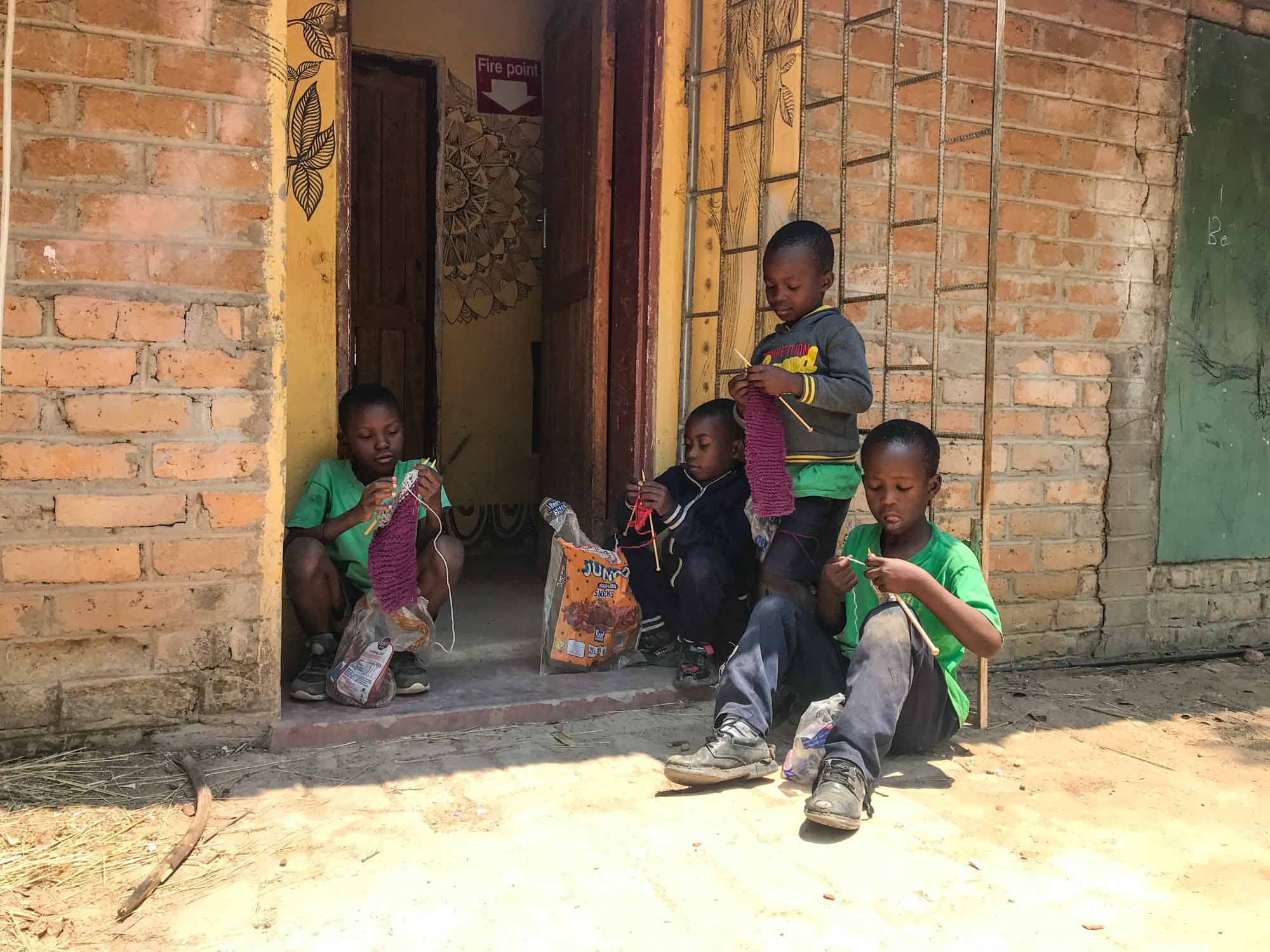

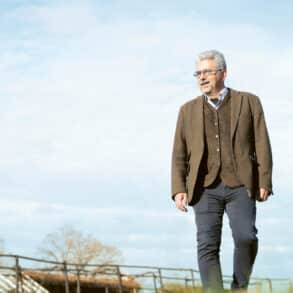
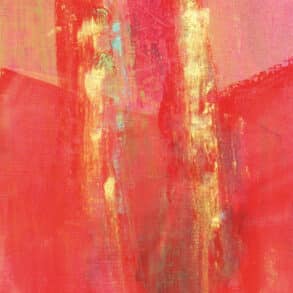
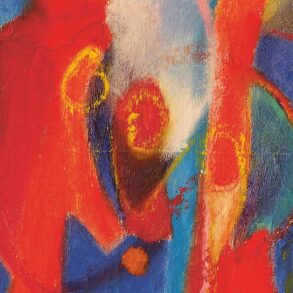
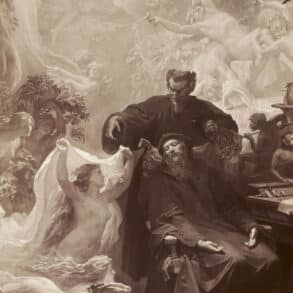

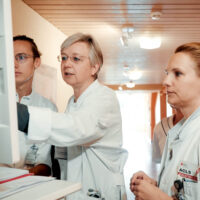

Having been to Zimbabwe for 6 months many years ago, I have thoroughly enjoyed reading this article!
What Maaianne and her helpers have co-created – may it live on in my heart together with my memories of the Zimbabweans I once met!